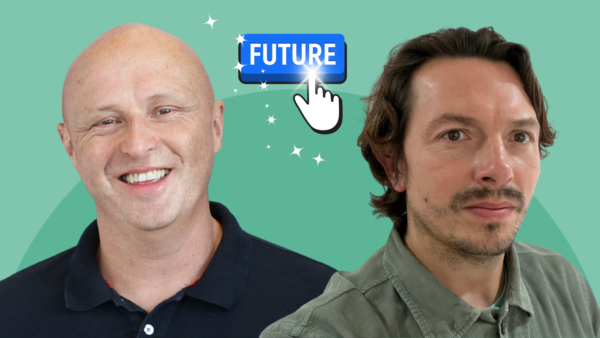Podcast transcript:
Change change change in the job market
It’s changing out there – seemingly month to month, it’s getting less predictable. What was an applicant’s market 6 months ago is now an employer’s market. So more and more people are on the lookout for their next role and their next career move. Whether this be upward, sideways, inward, outward, small step or huge leap, more people than ever right now are making that move. So today’s podcast is how to use your strengths as foundations to support you when you decide that you need to make a career move. Or when your employer decides for you. I have 5 top tips for you. So let’s get straight to them.
-
Your career is yours, no one’s going to choose it or manage it for you
This first point is so important. It’s still the case that many people feel that their organisation will take responsibility for managing their career, for offering them up new roles aligned with their strengths and skills, for taking them by the hand and supporting their development so they are ready for the next role.
I’m not sure the world of work has ever been like this and it definitely isn’t now. It is up to you to manage your own career. To decide on where you want to move next. And to get yourself in the best position to be ready for that move. And that means managing it yourself, from the earliest stages of your career, right the way through your entire working life.
Nobody knows better than you what you want to try, where you feel you’ll be most fulfilled, what’s going to be the right type of company and team culture fit for you. So tip number one is to first of all do some work to understand your career and role priorities and then have a word with yourself and go find that place that’s going to be best for you.
For a bit of inspo on this, search on ‘Shetel’ or ‘squiggly career’ on the Psychology@Work back catalogue – I had a conversation a few weeks back with Shetel Khimashia, where she provided a ton of golden tips and ideas on how best to navigate through career change and there’s much more there than I can give you here, but it’s a highly recommended listen.
-
Follow your strengths – find a path where your strengths will be valued and can easily be applied
My second tip is to challenge another belief – that work and careers are supposed to be hard. That is makes most sense to try and find career moves where you will be drawn so far out of your comfort zone that you’ll be in a perpetual state of overstretch. Really? Well nothing wrong with some stretch and learning to deepen your resilience and your knowledge and skills. But, please remember to find career opportunities where you will be best able to play to your strengths.
Your strengths are what energise you – they’re also the qualities that you’re great at or have the potential to become great at. And by that definition, surely everyone should be looking for a career path where they can use their core strengths most of the time and not have to draw on areas that drain them too much of the time.
Personal example, when I took on the sole ownership of Strengthscope, I was Managing Director. I knew that I was going to have to do some grind work to do to get the company on the path to stable growth and I knew that that was going to pull me out of my comfort zone into areas that had the potential to drain me. For example, for me focusing on process, systems, procedures. Thing is, I also knew that I should only go so far with that. My strengths are in areas like communication, engaging people around a purpose, providing future strategic direction, and making sure that the science behind what we’re doing is solid and evidence-based. And I could only do so much of those things in the MD role, which should by its nature be much more focused on day to day delivery of the business.
So within about 18 months in the MD role, I was on the hunt for someone to replace me in the role, so that I could focus more on the strength areas that both bring me joy and would create the most value for Strengthscope. I am delighted to say that I was successful in that search – so the business now has the MD that it needs for stable growth, and I am playing to my strengths far more of the time. Not 100% of the time, that’s not realistic. But 80% of the time probably, and I believe that’s a strong aim for everybody…to be feeling that your work isn’t work because you’re playing to your strengths 4 days out of 5. Even 2 days out of 5 would be a good aim for a lot of us.
-
Translating strengths into value – speaking the language of business using strengths
Gearing your career around your strengths starts with getting to know your strengths first. I’m going to use a couple of examples from the Strengthscope tool that will help you see what I mean. It’s great to know your strengths and it’s great to be able to use them. But you also need to be able to communicate how they add value…in the language of business.
And that’s never more important than when you’re job-seeking, particularly if you’re looking for a role that will see you pivoting in your career. New employers, and, once you’re in, new managers, need to understand how your strengths can drive value so that they can support your success in the role.
I’m going to focus in on job interviews here. If you have say an Enthusiasm strength, we at Strengthscope would define it as demonstrating passion and energy when communicating goals, beliefs, interests or ideas you feel strongly about. This is great to know, and if you have an Enthusiasm strength, it probably energises you to even read that definition. But how do you translate that into value that others will appreciate? Some thoughts, just on this one strength…
Before your interview, how about preparing thoroughly to present examples of how your passion and enthusiasm have driven positive outcomes in past roles, like getting a new idea or a new product adopted?
What about making sure that you spend the time explaining at interview how you’ve used different influencing and communication skills to ensure you got people on board with your ideas, oh and also including talking about what you learned when things didn’t go your way and how you adapted your style for the next time.
Here’s another strength, Empathy – we’re defining this as readily identifying with other people’s situations and seeing things clearly from their perspective. In interview then, you’d want to show that your ability to understand different people’s agendas and motives has brought genuine benefit. So be prepared to share the skills and methods that you’ve used to better understand colleagues and stakeholders at work, including listening, questioning and reflecting, with examples of where that’s really worked for you, your team and organisation.
Tip 3 then is to know your strengths and be able to talk about how they can help. Particularly at interview, but also really importantly, when you get into your new role and you’re wanting to make it more ‘you shaped’ by aligning it with your strengths from day 1.
-
Stay energised between roles by drawing on your strengths
Something else we often forget to do when we’re looking for a new role, particularly if leaving an old role hasn’t been either fully or even partly our choice, is to draw on our strengths to pull us through.
Taking Enthusiasm again – if you have that strength, when job-seeking, why not look for organisations, products or services in strong areas of interest for you…that way, your passions will have a place to play. Another idea, talk to colleagues and friends about your experiences during your job search; and where you have been at your most excited about an opportunity, ask for their feedback and listen back to their observations – it could give you ideas about where to focus your search and what’s most important for you in a role.
And for Empathy, spend time analysing the needs and motivations of the organisation, the team you’re looking to join and the people who’ll be interviewing you. By understanding and meeting their needs, you’re more likely to be successful and, another bonus, you’ll be energised as you go through the process of preparing for the interview. BTW, remember to check out your assumptions beforehand by researching through your network.
So tip 4 is to look to your strengths to anchor you as you go through the process of job hunting.
-
Beware your overdrive risks as they can get in the way of your career journey
So overdrive is what again? It’s the positive energy that you get from using your habituated strengths turning against when you rely on them too much or keep going with them even when they’re not working for you.
An example: your Collaboration strength might lead to you looking for strong teamship and a feeling of belonging from the people that you work with every day. And while that’s a great energy to be looking for, if it’s in overdrive it could influence your decisions on making a move away from the team…or it could be that the sense of belonging you’re craving isn’t really there and by continuing to look for it in the wrong place, you could end up feeling stuck, low energy and not really motivated to change anything.
If you have an Efficiency strength, that’s going to be great for planning, both for your day to day and for your longer term career strategy. But in overdrive, it might mean that you’re blindsided to changes in your role, or team or organisation that you weren’t expecting. All of a sudden, then, your plan is thrown into question because your context has shifted all around you when you weren’t paying attention. And if you’re not looking for new opportunities because the plan’s the thing, you might miss those too. So another double whammy strength in overdrive risk.
My final tip then is to know the strengths that have that tendency to go rogue for you, and keep them in check so that you get the best of them and they stay in your service and in service of your career rather than the other way round.
Conclusion – strengths can provide the missing piece of your career puzzle
It’s often the case that we don’t focus on our strengths as much as we might because we’re too busy fixing our flaws. When thinking about career moves and career management, with the additional pressure this brings, the effect can be magnified.
So be alert to that and keep your strengths close as you’re navigating change, particularly career change. Make sure that you can play to your strengths as much of the time as is realistic for you and keep challenging yourself to increase that percentage bit by bit, until as much as you can, you’re getting to feel that work isn’t really work. Aim for a positive Sunday feeling and not Monday dread. Till next time, stay strong.













